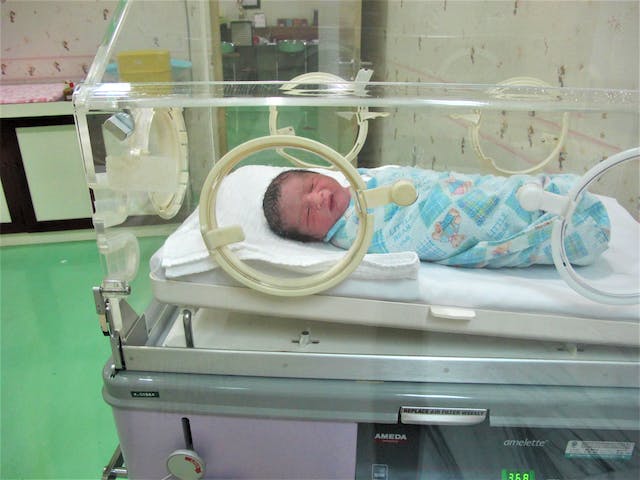Home » News » 2024 » February
News Brief
Feb. 21, 2024 |
By: Deborah Van Fleet - Public News Service
Bill in NE would allow parents to 'opt out' of newborn screenings

By Deborah Van Fleet - Public News Service
Every state has been screening newborns for several decades, usually performing a heel-prick blood test, a hearing test and a heart check.
Several disorders diagnosed through newborn screenings can be treated and their effects significantly reduced when caught early.
Sen. Ben Hansen, R-Blair, said Nebraska is one of only three states without a provision for parents to "opt out" of newborn screening for religious or other reasons. His bill, Legislative Bill 1060, would change that.
Hansen noted constituents brought this issue to his attention, pointing out refusing the screenings can result in a lawsuit, lack of a birth certificate and even the possibility of the state taking a child away.
"That kind of philosophically goes against my idea of a parent's liberty to either object or accept doing a test such as this," Hansen explained.
In 2008, Nebraska's Department of Health and Human Services temporarily removed a child from parents who refused the newborn screening based on their religious beliefs. The case reached the Nebraska Supreme Court, which determined the state's mandated screenings do not violate the free exercise of religion provisions in the Nebraska Constitution. The court noted the screenings test for conditions which, untreated, "can lead to mental disabilities, loss of hearing, loss of vision, irreversible brain damage, or death."
Hansen stressed his bill only leads to a change in the state's newborn screening protocol if the parents or guardians specifically request it.
"Only if the parent actually engages with the hospital or the doctor and says, 'Hey, look, I do not want this test on my child,'" Hansen emphasized. "It's not like when you go to the hospital to have a baby, the doctor says, 'OK, so do you want to have this test done?' They don't even ask that question; it's just done."
Julie Luedtke managed Nebraska's Newborn Screening Program for 24 years before retiring. She is concerned about treatable disorders being missed if parents opt out of newborn screenings.
"Every year, just in Nebraska, somewhere between 50 and 60 babies with one of these clinically significant diseases gets identified, and gets into treatment, and has these terrible things prevented," Luedtke stressed.
When she managed the screening program, Luedtke surveyed her peers in states with an "opt out" provision, asking whether any babies whose parents opted out of the screenings were later found to have disorders. She noted there were a number of them, including a baby who died at eight days of age from galactosemia, the inability to process the sugar galactose present in breast milk, cow's milk and other dairy products.
"She's feeding her baby, not knowing that's basically killing the baby," Luedtke recounted. "If they'd done the screen and gotten the results back, they'd know to get that baby changed right away and onto a soy formula, and the baby would have been fine. Sadly, that baby died."
The measure had its first hearing on Jan. 31 in the Health and Human Services Committee. As yet, no further action has been taken.
![]()






